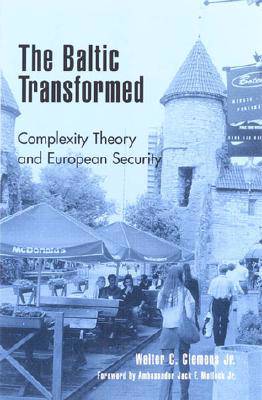
- Afhalen na 1 uur in een winkel met voorraad
- Gratis thuislevering in België vanaf € 30
- Ruim aanbod met 7 miljoen producten
- Afhalen na 1 uur in een winkel met voorraad
- Gratis thuislevering in België vanaf € 30
- Ruim aanbod met 7 miljoen producten
Zoeken
€ 103,45
+ 206 punten
Uitvoering
Omschrijving
Why isn't the Baltic region like the Balkans? Why have the Baltic republics not experienced ethnic cleansing, border wars, authoritarian rule, and social chaos? Instead, peace, democracy, and market economies have taken root since the fall of communism. Walter C. Clemens, Jr., here uses complexity theory, which analyzes the role of self-organization in complex adaptive systems, to explain the "Baltic miracle." He argues that the theory is a vital tool for understanding the remarkable strides made by Estonia, Latvia, and Lithuania since 1991 in coping with the transition to partnership with the new Europe. One of the first books to apply complexity theory to a major sphere of world politics, The Baltic Transformed will provoke constructive debate with its ambitious and well-grounded analysis of not only Baltic developments but European security more generally.
Specificaties
Betrokkenen
- Auteur(s):
- Uitgeverij:
Inhoud
- Aantal bladzijden:
- 320
- Taal:
- Engels
- Reeks:
Eigenschappen
- Productcode (EAN):
- 9780847698592
- Verschijningsdatum:
- 25/05/2001
- Uitvoering:
- Paperback
- Formaat:
- Trade paperback (VS)
- Afmetingen:
- 149 mm x 229 mm
- Gewicht:
- 417 g

Alleen bij Standaard Boekhandel
+ 206 punten op je klantenkaart van Standaard Boekhandel
Beoordelingen
We publiceren alleen reviews die voldoen aan de voorwaarden voor reviews. Bekijk onze voorwaarden voor reviews.











